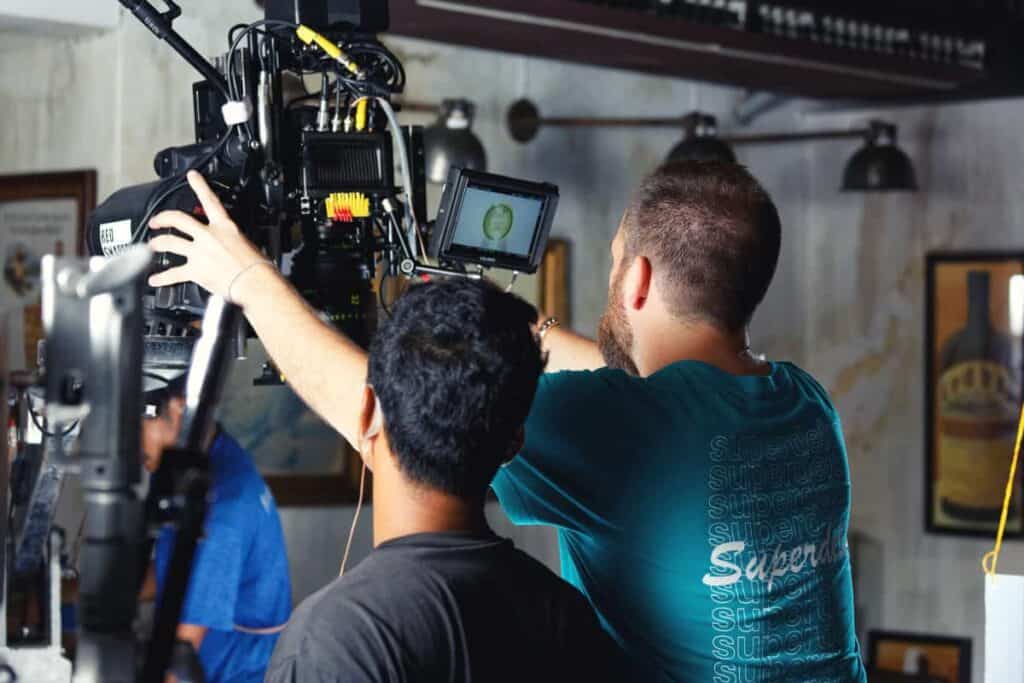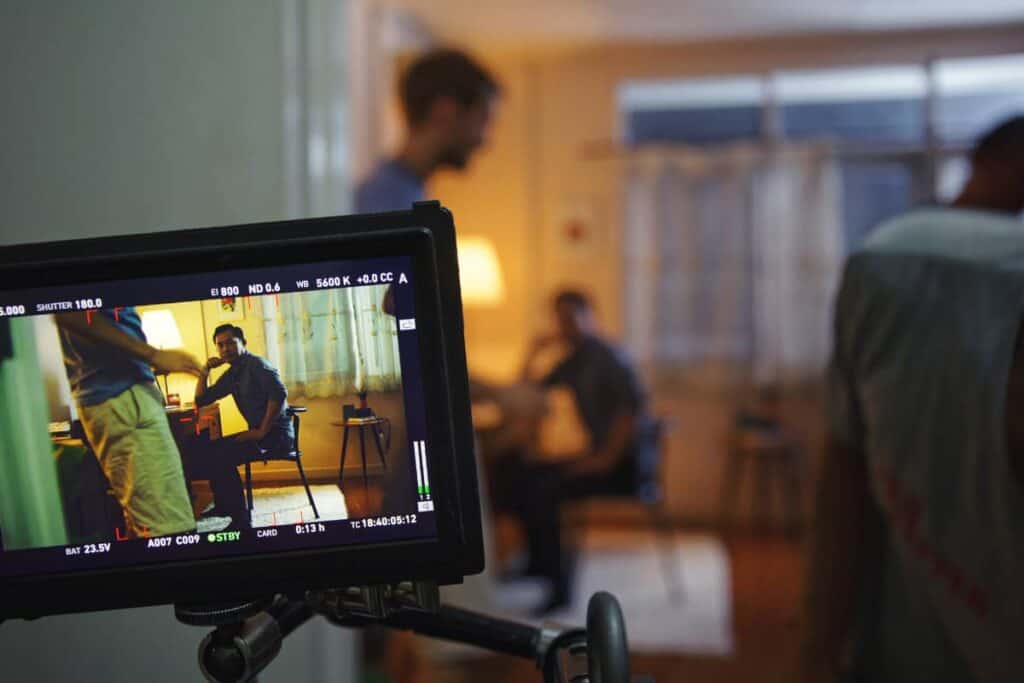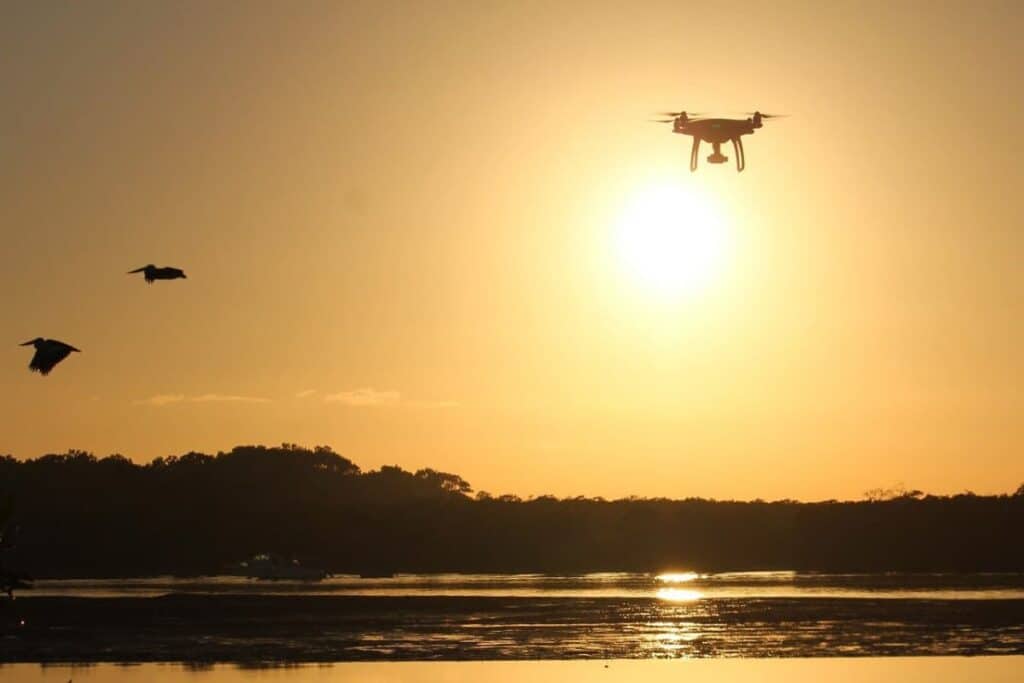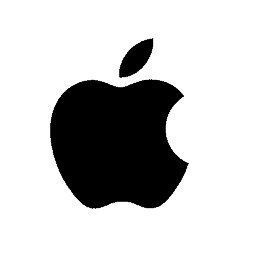Everything You Need To Know About Video Production
Introduction to Video Production

Pre - Production

The shooting schedule is an overview of all shooting days and clarifies which scene is shot at which time. It also gives us information on locations, interior and exterior shooting, which actors are required at what times, making it the most important planning tool for changes in schedule during the shoot.
The shotlist is kept with the director, assistant director, production manager and cameraman and lists all of the shots per scene. Professional films differentiate between A-Shot, B-Shot and C-Shot and these make it clear on set which shots are cancelled without having to discuss to keep the schedule in case of any delays.
The daily schedule / call sheet details the shooting day determining how much time is available for scenes, while showing us how many scenes there are per day of shooting. Lunch, breaks, parking spaces, the weather forecast and contact numbers of the people responsible for the shooting and the locations are all included in the daily schedule.
The storyboard is a visual depiction of shot lists and is a planning tool that helps directors, cinematographers as well as the clients visualize the scenes beforehand the while also used to find possible problems before they happen. Storyboards show where the camera is positioned, as in close or far away and it also helps to convey what the characters are doing.
Production companies need to establish the leading crew positions who have the most important roles for when shooting begins. These positions will include the director (the creative head of the project), the producer who prepares and supervises the project from start to finish, the production manager who deals with the practical details of the production, as well as the sound and camera directors.
Casting is an important process that requires choosing and managing the talent for your video. The client might select professional actors/models or internal talent depending on the video, each offering their own benefits. Ultimately, the client chooses who they want to be in their video.
Once the video concept is established, the writer has to do research necessary to come up with the idea of the script so that the production team can determine and organize potential shooting locations. This will include discussing with the clients and reading up on the company’s history to get a better understanding of what they want to convey.
The idea the clients want to get across is what we call the concept. This is an important part of each project that needs to be established early on in the planning stages of production. If the clients are uncertain of what the concept should be, then the producers and writers will need to communicate with the clients in order to determine what the concept is before starting on the script.
Once research has been conducted, the writer will start work on the script for shooting, which becomes the foundation of the production. The script gives both the client and the production crew a basic feel and understanding of the video’s tone.
The final step of pre-production is when the producer sets everything in motion. Once the storyboard is completed, and the clients and production team are satisfied they then use the information from the script and storyboard to secure permits, set up shoots and contact the cast and crew in order to book shooting dates and times.
Production / Shooting

Types of Shooting / Camera Filming Techniques

Post-Production

Types of Video Production
Corporate video production is any type of non-advertisement based video content that’s commissioned by and created for the company. This type of video is aimed at the company’s core selling demographics / internal employees. For example, recruitment videos are a type of corporate video that sells the company as an ideal workplace for the right candidates. Other examples include:
- Corporate overview videos
- Staff training and safety videos
- Event videos
- Shareholder videos
- Testimonial videos
- Branding videos
- Staff training videos
- CEO profiles
- Brand videos

Commercial/Promotional Videos
Promotional or commercial videos are absolutely crucial for every business wanting to build brand awareness and increase their sales. Commercial video productions are usually short videos that briefly describe your product, or services. The intention is to inspire a call to action from your audience and to develop brand loyalty all the while distributing to a bigger audience through targeted advertising campaigns.
- TV Broadcast Commercial
- Topical Videos
- Viral Marketing Ad Campaigns
- Youtube Videos
- Social Media Videos
- Performance Videos
- Internet Commercial Videos
- Product promotional Videos
- Comparison Videos
With rapid online and social media development, commercial videos are being distributed heavily through various social media and video sharing platforms such as Facebook, Instagram and Youtube. Commercial videos have evolved to become more cinematic in approach.To truly understand your goals, purposes and target audience, you’ll need to take added care and consideration during the pre-production phase so as to best ensure your videos exude quality and succinctly deliver your message.
CONTACT US
Fill out the form to speak to a producer.














































